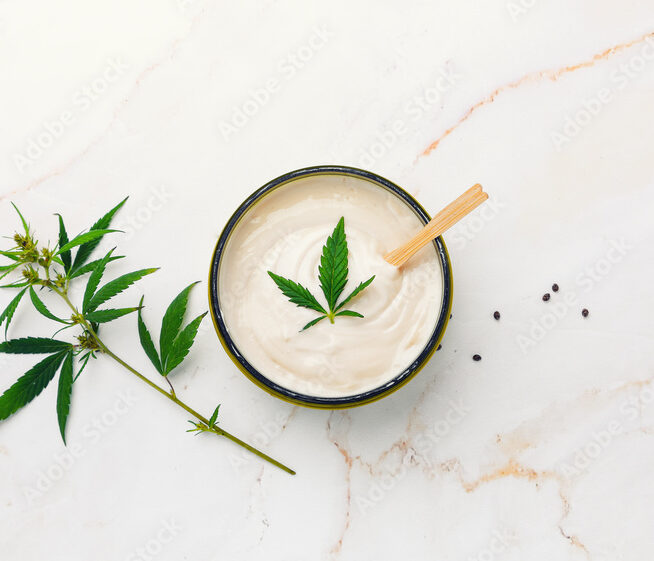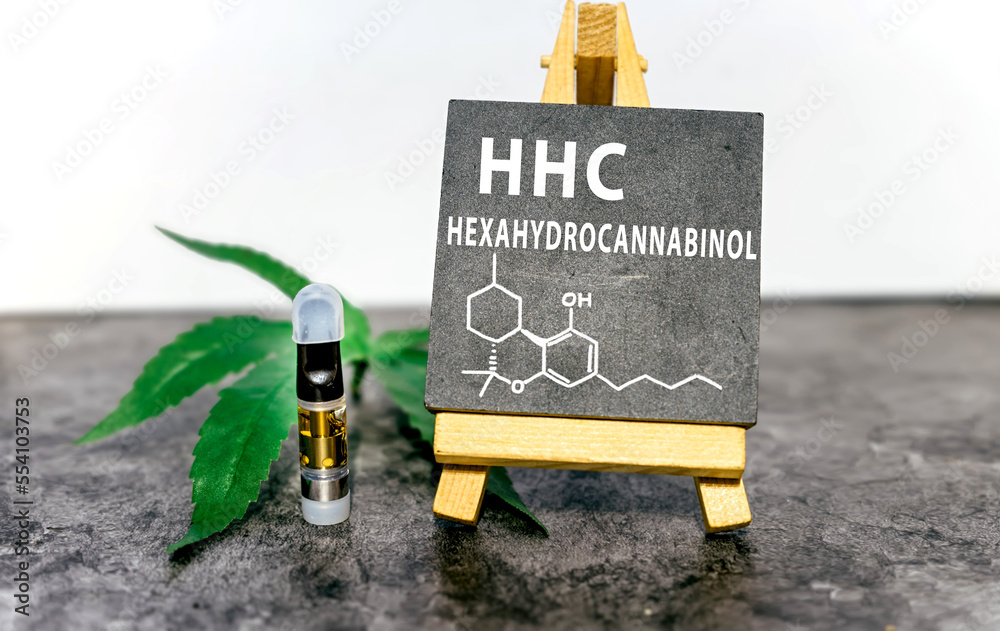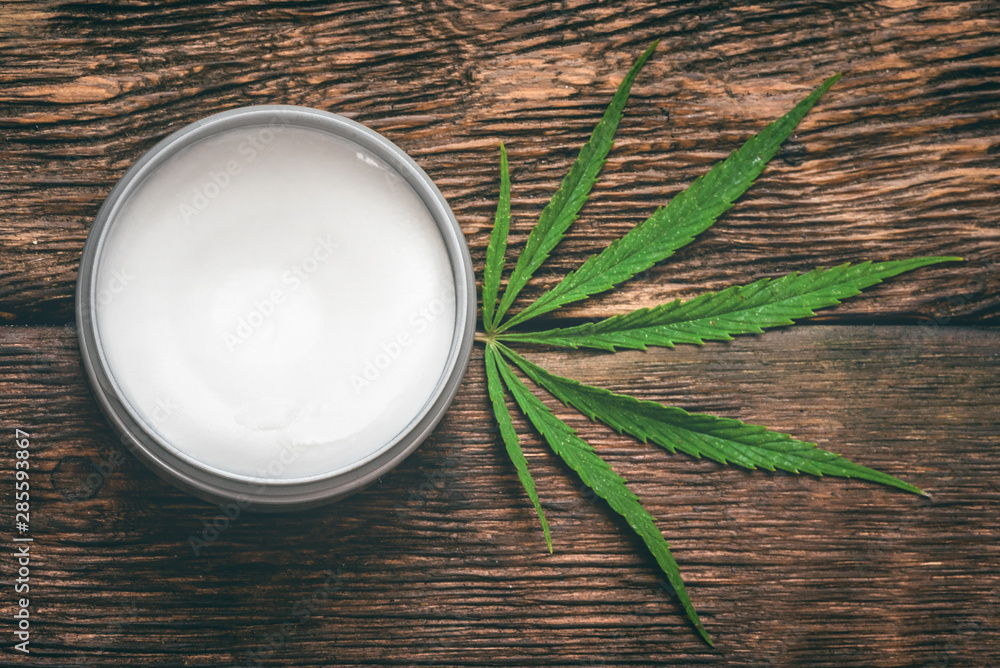HHC vs CBD
It seems like you’re asking about the differences between HHC (Hexahydrocannabinol) and CBD (Cannabidiol), both of which are compounds found in the cannabis or hemp plant. Let me explain the key distinctions between the two:
- Chemical Structure:
- HHC: Hexahydrocannabinol is a synthetic cannabinoid that is structurally similar to THC (Tetrahydrocannabinol), the psychoactive compound in cannabis. It is sometimes referred to as a THC analog due to its structural resemblance.
- CBD: Cannabidiol is a naturally occurring compound in the cannabis plant. Unlike HHC and THC, CBD does not have a psychoactive effect and is non-intoxicating and may show up on a drug test in trace amounts
- Psychoactivity:
- HHC: Like THC, HHC has the potential to produce psychoactive effects, which can include altered perception, euphoria, and impairment of cognitive functions. However, the extent of its psychoactivity may vary depending on its formulation and dosage.
- CBD: CBD is not psychoactive and does not produce the “high” associated with THC or HHC. It has different effects on the body and is often used for its potential therapeutic benefits without the intoxicating side effects.
- Legality:
- HHC: The legality of HHC varies by jurisdiction. In some places, it may be classified as a controlled substance due to its psychoactive properties, while in others, it may be legal or fall into a legal gray area. The 2018 Farm Bill helped normalize CBD while setting standards for THC.
- CBD: CBD derived from industrial hemp containing less than 0.3% THC is legal in many parts of the world, including the United States on the federal level. However, the legal status of CBD can vary by country, so it’s essential to check local regulations.
- Potential Uses:
- HHC: There is limited research on the potential uses and safety of HHC. Some individuals may use it for recreational purposes, but its therapeutic potential is not well-established.
- CBD: CBD has gained popularity for its potential therapeutic uses, including the management of pain, anxiety, seizures, and certain medical conditions. It is available in various forms, including oils, capsules, and topical products.
Harmful side Effects of HHC or THC
THC (tetrahydrocannabinol) is the primary psychoactive compound found in cannabis, and while it has some potential therapeutic benefits, it also carries certain harmful effects, especially when used in excess or by vulnerable individuals. It’s important to note that the severity of these effects can vary from person to person, and some individuals may be more susceptible than others. Here are some of the harmful effects of THC:
- Impaired cognitive function: THC can impair cognitive functions such as memory, attention, and decision-making, particularly when used in high doses. This can interfere with daily activities and tasks.
- Psychosis and mental health issues: Some individuals, especially those with a predisposition to mental health disorders, may experience acute psychotic episodes or exacerbation of existing mental health conditions like schizophrenia or bipolar disorder after using THC.
- Addiction and withdrawal: THC can be habit-forming, leading to cannabis use disorder or addiction in some people. Regular users may develop tolerance, meaning they need higher doses to achieve the same effects, and they can experience withdrawal symptoms when they try to stop using it.
- Negative impact on lung health: Smoking or vaping cannabis can have harmful effects on the respiratory system, similar to smoking tobacco. It can lead to chronic bronchitis, lung infections, and other respiratory issues.
- Impaired motor skills and coordination: THC can impair motor skills and coordination, increasing the risk of accidents and injuries, particularly when driving or operating heavy machinery.
- Cardiovascular effects: THC can temporarily increase heart rate and blood pressure, which may pose risks to individuals with pre-existing cardiovascular conditions.
- Reduced motivation and productivity: Chronic cannabis use has been associated with a lack of motivation, decreased productivity, and impaired educational or occupational functioning.
- Negative impact on pregnancy: Using cannabis during pregnancy can harm fetal development and is associated with low birth weight, preterm birth, and developmental problems in children.
- Risk of drug interactions: THC can interact with other medications, potentially increasing or decreasing their effectiveness or causing adverse effects. It’s important for individuals using THC-containing products to discuss potential interactions with their healthcare provider.
- Risk of acute intoxication: High doses of THC can lead to acute intoxication, which may include symptoms like paranoia, anxiety, hallucinations, and extreme discomfort. In severe cases, it can lead to a medical emergency. it affects the central nervous system.
- Legal and social consequences: In many places, the possession and use of THC are illegal, which can result in legal consequences such as fines or imprisonment. Additionally, the social stigma associated with cannabis use can have negative personal and professional implications. Small amounts of use of hhc may show as a positive result on a drug test and you may risk losing your job.
It’s essential to use THC-containing products responsibly and be aware of the potential risks, especially if you have a personal or family history of mental health issues or are pregnant. If you have concerns about using THC, consult a healthcare professional for guidance and consider the potential benefits and risks in your specific situation.
Benefits of THC
THC, or delta-9-tetrahydrocannabinol, is the primary psychoactive compound found in cannabis. It is responsible for the “high” or altered state of consciousness that people often associate with using marijuana. While THC has some potential benefits, it’s important to note that it also has drawbacks and risks, especially when used in excess or by certain individuals. Here are some potential benefits of THC:
- Chronic Pain Relief: THC can have analgesic (pain-relieving) effects and is used medically to alleviate chronic pain conditions, such as neuropathic pain and pain associated with cancer or multiple sclerosis.
- Appetite Stimulation: THC is known to increase appetite, which can be beneficial for individuals with conditions like cancer, HIV/AIDS, or eating disorders.
- Nausea and Vomiting Relief: THC can help reduce nausea and vomiting, making it useful for cancer patients undergoing chemotherapy or individuals with severe nausea due to other medical conditions.
- Muscle Relaxation: It may help relax muscles and reduce muscle spasms, which can be beneficial for conditions like multiple sclerosis and certain types of muscle disorders.
- Mood Elevation: THC can induce a feeling of euphoria or relaxation, which some people find helpful for managing symptoms of anxiety, depression, and stress.
- Sleep Aid: It may help some individuals with insomnia by promoting relaxation and sedation.
- Neuroprotective Effects: Some research suggests that THC may have neuroprotective properties, potentially offering benefits for neurodegenerative conditions like Alzheimer’s disease and Parkinson’s disease.
- Glaucoma Treatment: THC can temporarily lower intraocular pressure, which may provide relief for individuals with glaucoma.
- Creative and Cognitive Effects: Some people report enhanced creativity and altered thought processes while under the influence of THC, which can be used for artistic or problem-solving purposes.
It’s important to note that while THC has potential benefits, it also carries risks and side effects, including impaired cognitive function, memory problems, anxiety, paranoia, increased heart rate, and addiction potential. Additionally, the legality of THC varies from one place to another, so it’s crucial to understand and abide by local laws and regulations. certain thc products may be regulated by federal law. check before buying new products.
Medical use of THC should always be supervised by a healthcare professional who can provide guidance on dosing and monitor potential side effects. It’s also important to consider alternative treatments and cannabinoids, such as CBD (cannabidiol), which offer therapeutic benefits without the psychoactive effects associated with THC. Hemp-derived products(hhc products and cbd products) have many benefits
Side Effects of CBD
CBD (cannabidiol) is a compound found in cannabis plants, and it has gained popularity for its potential therapeutic benefits. While many people use CBD without experiencing significant side effects, it’s essential to note that everyone’s response to CBD can vary, and some side effects have been reported. It’s also important to distinguish CBD from THC (tetrahydrocannabinol), another compound found in cannabis, as THC is responsible for the psychoactive effects associated with marijuana, whereas CBD is not.
Here are some potential side effects of CBD seen in recent years:
- Dry mouth: CBD can reduce saliva production, leading to a dry or cottonmouth sensation. Staying hydrated can help alleviate this side effect.
- Changes in appetite: Some people report an increase in appetite (the “munchies”), while others may experience a decrease in appetite.
- Diarrhea: In some cases, CBD can cause digestive issues such as diarrhea. Lowering the dose or discontinuing use may help alleviate this side effect.
- Drowsiness and fatigue: CBD can have a calming effect on some individuals, leading to drowsiness or fatigue, especially at higher doses. It’s advisable not to operate heavy machinery or drive when feeling drowsy.
- Changes in blood pressure: Some individuals may experience a slight drop in blood pressure when using CBD. If you have low blood pressure or are taking medications to lower blood pressure, it’s essential to consult with a healthcare professional before using CBD.
- Interaction with other medications: CBD can interact with certain medications, particularly those that are metabolized by the liver’s cytochrome P450 enzymes. These interactions can affect the potency and safety of both the medication and CBD.
- Potential for liver issues: There is some evidence to suggest that long-term, high-dose CBD use may have an impact on liver enzymes. It’s essential to consult with a healthcare provider if you plan on using CBD regularly, especially at high doses.
- Possible Allergic reactions: While rare, some individuals may be allergic to CBD or other components in CBD products. start slow with hemp products and see how you feel. If you experience symptoms such as skin rash, itching, or difficulty breathing after using CBD, seek medical attention immediately.
- Mood changes: In some cases, CBD can affect mood and emotions. It may exacerbate anxiety or depression in some individuals, while others may find relief from these conditions.
- Gastrointestinal issues: CBD may cause nausea or upset stomach in some individuals.
It’s crucial to start with a low dose of CBD and gradually increase it as needed while monitoring for any adverse effects. Additionally, consulting with a healthcare professional before using CBD, especially if you have underlying medical conditions or are taking medications, is advisable to ensure its safety and effectiveness for your specific situation. The side effects of CBD can vary from person to person, and more research is needed to better understand its long-term effects fully.
Benefits of CBD:
CBD, or cannabidiol, is a compound derived from the cannabis plant that has gained popularity in recent years for its potential therapeutic benefits. While research is still ongoing, there is some evidence to suggest that CBD may offer several potential benefits, including:
- Therapeutic effects.
- Pain Management: CBD may have analgesic (pain-relieving) properties. Some studies suggest that it can be effective in reducing pain associated with conditions like chronic pain, arthritis, and multiple sclerosis.
- Anxiety and Stress Reduction: Many people use CBD to help alleviate symptoms of anxiety and stress. It may interact with receptors in the brain that regulate mood and stress responses, potentially promoting a sense of calm.
- Sleep Improvement: CBD may help improve sleep quality and address issues like insomnia. Some users report experiencing better sleep after taking CBD.
- Anti-Inflammatory Effects: CBD has anti-inflammatory properties and may help reduce inflammation in the body. This could be beneficial for conditions characterized by chronic inflammation, such as arthritis and inflammatory bowel diseases.
- Seizure Management: One of the most well-known uses of CBD is in the treatment of certain forms of epilepsy, particularly in children. Epidiolex, a CBD-based medication, has been approved by the FDA for this purpose.
- Neuroprotection: Some research suggests that CBD may have neuroprotective properties, potentially offering benefits for conditions like Parkinson’s disease and Alzheimer’s disease, although more research is needed in this area.
- Anti-Nausea: CBD may help alleviate nausea and vomiting, making it useful for cancer patients undergoing chemotherapy and individuals with motion sickness.
- Skin Health: CBD is increasingly being used in skincare products due to its potential anti-inflammatory and antioxidant properties, which could benefit conditions like acne and eczema.
- Addiction Treatment: There is some evidence to suggest that CBD may help individuals with substance use disorders by reducing cravings and withdrawal symptoms.
- Cardiovascular Health: CBD may have potential benefits for heart health, including reducing blood pressure and potentially lowering the risk of heart disease.
It’s important to note that while many people report positive experiences with CBD, its effectiveness can vary from person to person, and more research is needed to fully understand its mechanisms of action and potential long-term effects. Additionally, the regulatory status of CBD varies by country and region, so it’s essential to be aware of the legal status in your area before using it. If you’re considering using CBD for a specific medical condition, it’s advisable to consult with a healthcare professional for guidance.
It’s important to note that both HHC and CBD are subject to ongoing research, and our understanding of their effects and potential uses may evolve over time. If you are considering using either of these compounds for medical or recreational purposes, it’s crucial to consult with a healthcare professional and adhere to local laws and regulations. Additionally, be cautious when using any cannabis-related product, as their effects can vary from person to person.


